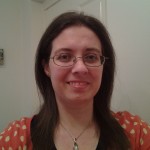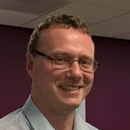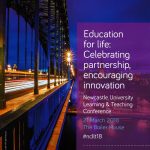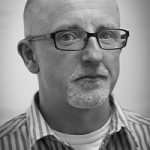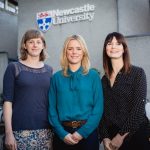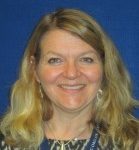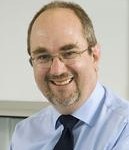Congratulations to everyone in the Faculty who has published their research this quarter. If anything is missing let us know.
Journal Articles
Rammell J, Matthan J, Gray M, Bookless LR, Nesbitt CI, Rodham P, Moss J, Stansby G, Phillips AW, Asynchronous Unsupervised Video-Enhanced Feedback As Effective As Direct Expert Feedback in the Long-Term Retention of Practical Clinical Skills: Randomised Trial Comparing 2 Feedback Methods in a Cohort of Novice Medical Students. Journal of Surgical Education. https://doi.org/10.1016/j.jsurg.2018.03.013
St Clair-Thompson H, Chivers C, Characteristics of students who consider taking a psychology placement year. Studies in Higher Education . https://doi.org/10.1080/03075079.2018.1466113
Presseau J, Mackintosh J, Hawthorne G, Francis JJ, Johnston M, Grimshaw JM, Steen N, Coulthard T, Brown H, Kaner E, Elovaninio M, Sniehotta FF, Cluster randomised controlled trial of a theory-based multiple behaviour change intervention aimed at healthcare professionals to improve their management of Type 2 diabetes in primary care. Implementation Science. https://doi.org/10.1186/s13012-018-0754-5
Codd A, Burford B, Petruso G, Davidson N, Vance G, Development and evaluation of a digistory about autistic spectrum disorder – a pilot study. Education for Primary Care.
Mayes J, Davies S, Harris A, Wray E, Dark GG, Impact of a 2-Week Oncology Placement on Medical Students’ Perception of Cancer. Journal of Cancer Education. https://doi.org/10.1007/s13187-016-1101-7
Moynihan P, Makino Y, Petersen PE, Ogawa H, Implications of WHO Guideline on Sugars for dental health professionals . Community Dentistry and Oral Epidemiology. https://doi.org/10.1111/cdoe.12353
Oleribe OO, Salako BL, Akpalu A, Anteyi E, Ka MM, Deen G, Akande T, Abellona MR, Lemoine M, McConnochie M, Foster M, Walker R, Taylor-Robson SD, Jawad A, Public Private Partnership in in-service training of physicians: the millennium development goal 6-partnership for African clinical training (M-PACT) approach. Pan African Medical Journal.
Steven A, Larkin V, Stewart J, Bateman B, The value of continuing professional development: a realistic evaluation of a multi-disciplinary workshop for Health Visitors dealing with children with complex need. Nurse Education Today. https://doi.org/10.1016/j.nedt.2018.04.021
Martin AJ, Beska BJ, Wood G, Wyatt N, Codd A, Vance G, Burford B, Widening interest, widening participation: factors influencing school students’ aspirations to study medicine. BMC Medical Education. https://doi.org/10.1186/s12909-018-1221-3
Jandial S, Bussey S, Sandford T, Frearson R, Evaluation of a novel longitudinal clinical placement in the MBBS programme, Newcastle University. ASME Annual Scientific Meeting.
Bussey S, Delgaty L, Use of ‘Adobe Connect’ web-conferencing software as a synchronous classroom to support e-learning. Annual North East Regional Learning and Teaching Conference (Three Rivers: The North East Universities Consortium).
B Abdulmohsen, I Gharib, S Mchanwell, Tooth morphology – tooth carving – a new approach to an old favourite. The Association of Basic Science Teachers in Dentistry (ABSTD) Spring meeting 2018– Integrating and Interfacing of Sciences in Dentistry and the wider academic Community. School of Dentistry, University of Dundee, Dundee, UK. Link (in p2): https://abstd.files.wordpress.com/2018/05/newsletter-may-2018-v2.pdf
Extras post publication of ERDP Summer newsletter
Cobb, M, Prabahar P, Bartram A and J Matthan (2018) Enhancing the surgical skills of oral and maxillofacial trainees through dissection: A medical student cum oral and maxillofacial trainee perspective. Oral presentation at British Association of Clinical Anatomists, June 2018, Cambridge, UK
Eltayeb M and J Matthan (2018) ‘Additive Manufacturing’ in medical education: Marrying cranioplasty with skull anatomy utilising 3D printing can enhance anatomy learning. Oral presentation at British Association of Clinical Anatomists, June 2018, Cambridge, UK.
Matthan J, Rammell J, Gray M, Bookless L, Nesbitt C, Rodham P, Moss J, Stansby G and AW Phillips (2018) Asynchronous unsupervised video-enhanced feedback as effective as direct expert feedback in the long-term retention of practical clinical skills: Randomised trial comparing two feedback methods in a cohort of novice medical students. Oral presentation at ASME 2018, Newcastle England
Delgaty L and J Matthan (2018) Top Tips for Master’s Success: Exposing hidden elements of the research process to develop unseen research skills. Oral presentation at ASME 2018, Newcastle England
Matthan J and ID Keenan (2017) Anatomy in a new medical curriculum: Initial educator perspectives. Oral presentation The Trans-European Pedagogic Anatomical Research Group (TEPARG), Paris, March 2018
Nita G and J Matthan (2017) Minimally Invasive Anatomy: undergraduate clinical anatomy curricula must accommodate for new surgical advances. Eposter presentation at The Trans-European Pedagogic Anatomical Research Group (TEPARG), Paris, March 2018.
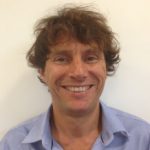 It was a pleasure to host Professor Alex Harding of Exeter University at our ERDP seminar in May to hear his talk based on his PhD on “The Role of Learning Networks in Undergraduate Clinical Medicine”.
It was a pleasure to host Professor Alex Harding of Exeter University at our ERDP seminar in May to hear his talk based on his PhD on “The Role of Learning Networks in Undergraduate Clinical Medicine”.
